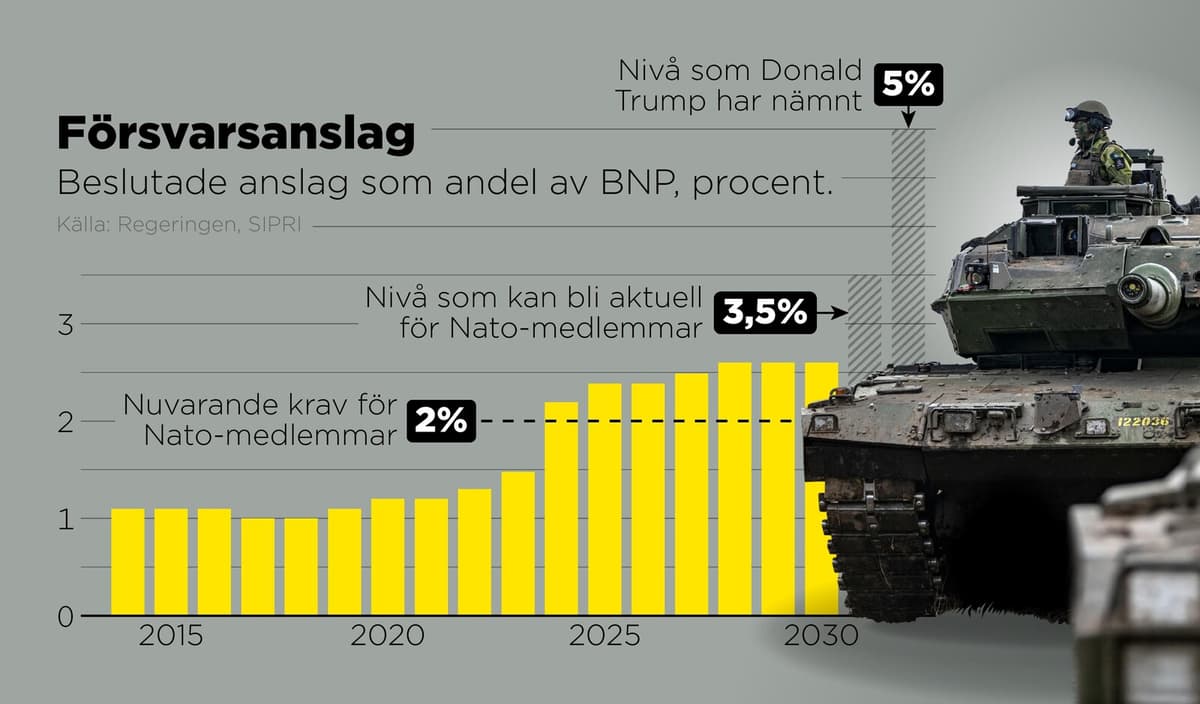The allocations to the military defense amount to 138 billion kronor for 2025. According to the defense decision made before Christmas, Sweden's defense allocations are to be 2.6 percent of GDP by 2028, which is estimated to be 173 billion. A figure that already appears to be outdated.
This is because NATO is now talking about budgets of 3.5 percent of GDP. US President Donald Trump is going even further in his demands – five percent of GDP.
Two things
The question is now how Sweden will be able to pay the bill? This is how three experts respond:
John Hassler is a professor of macroeconomics at Stockholm University:
He believes that the big question is whether it's about a temporary expense or an adjustment to a tougher world with long-term higher defense expenditures.
According to economic theory, it's right and proper to borrow in a situation where you have temporarily high expenses, he says.
And if it's not sensible to borrow for this, then we must finance it. Simply put, there are only two things you can do – cut back on other expenses or increase taxes.
A Swedish Doge?
Lars Jonung is a professor emeritus of national economics at Lund University:
He doesn't want to see a Swedish Doge. Instead, he believes there are many savings to be made in the public sector.
It's the politicians' task to prioritize, he says.
Jonung is open to some tax increases, but when it comes to the alternative of borrowing to beef up, it's a clear no.
We shouldn't borrow more than we already do. Increased defense expenditures are a form of consumption and not investments, and we shouldn't pass that on to our children and grandchildren.
Lars Calmfors is a professor emeritus of international economics at Stockholm University:
He reasons around the so-called reform space. An increase in defense allocations of one percent of GDP would take up two years of space. Such financing would be very problematic, he believes, since it would hit hard, among other things, the municipalities, which wouldn't be able to get compensation for cost increases.
Re-prioritizations in the public sector then?
Yes, there can certainly be made efficiencies, but it has proven not to be so easy. We don't want a Swedish equivalent to Elon Musk?
Not popular
Lars Calmfors is not opposed to borrowing money. Even some tax increases, he believes, would be reasonable, such as increased tax on capital income and property.
The latter I advocated for a few years ago with the motivation that those who have the most valuable properties have more to lose economically in war. It wasn't so popular, but I still think it's a sensible idea, he says and continues:
But I believe that a combination of all three things is needed, expenditure cuts, some tax increases, and borrowing.






